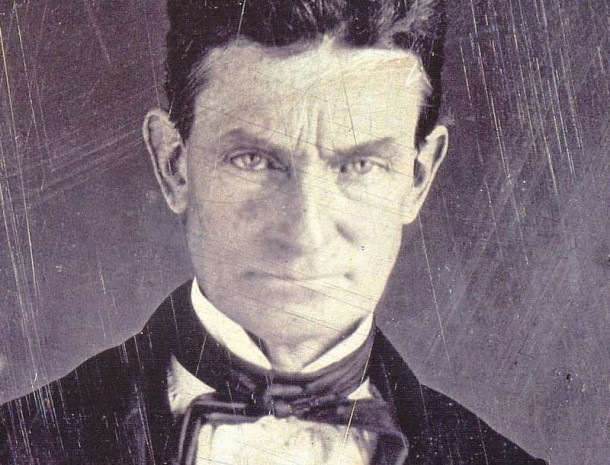Maybe you remember John Brown from your history class. An
abolitionist, he believed that peaceful reform of slavery was
impossible, and only a violent disruption of the slaveholding status quo
would end this massive, brutal injustice. In 1859 he attempted to start
a slave revolt by seizing the US arsenal at Harper's Ferry in Virginia,
but the assault went wrong and he and his comrades were caught and
executed for treason.
Terry Bisson's Fire on the Mountain is an
alternate history that asks the question - what if the assault had
succeeded? What if instead of a civil war started by slaveholders who
wanted to continue exploiting human beings, America had a revolution
started by people who believed that all human beings should be free? In
real life, John Brown worked closely with Harriet Tubman, and many
scholars believe that if she hadn't been prevented by illness from
traveling south to help him plan the attack, he would have succeeded. Fire on the Mountain
takes a simple change - she didn't get sick, she helped the rebels, the
attack was successful and started a revolution - and extrapolates a
whole complicated marvelous utopian future from that. It opens 100 years
later, as the prosperous state of Nova Africa is about to put a man on
Mars, and pieces together the history through letters and testimonials.
Bisson's John Brown is no white savior, coming to rescue helpless people of color. Harriet Tubman is as important a force of liberation, and the book is full of strong compelling characters (including slaves) who make active decisions that drive the plot forward. Nor does Bisson skimp on the nuanced details of how, exactly, the Harper's Ferry raid leads to such massive historic changes. It's also remarkable for how, without seeming boring or didactic or ideological, it captures the diverse opinions of abolitionists (ranging from people who oppose slavery but refuse to DO anything about it, to people who take up arms and are willing to kill and die for the cause).
Alternate history is like candy-coated medicine. We love it, because it's fun and wacky and imaginative and isn't bound by some of the things that can make real history range from boring (like memorizing dates) to upsetting (like the fact that history is full of oppression and suffering and massacres and exploitation).
Alternate history is like candy-coated medicine. We love it, because it's fun and wacky and imaginative and isn't bound by some of the things that can make real history range from boring (like memorizing dates) to upsetting (like the fact that history is full of oppression and suffering and massacres and exploitation).




Oh my gosh, this is one of my favorite books in all the world! I did a mini review of it back in 2008 when I wrote about several Afrofuturist books here on GLW. For me, Terry Bisson can do no wrong.
ReplyDelete